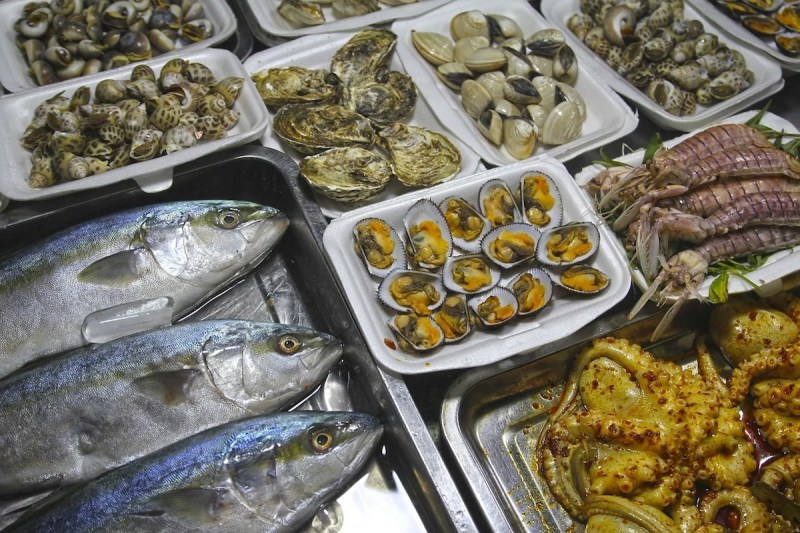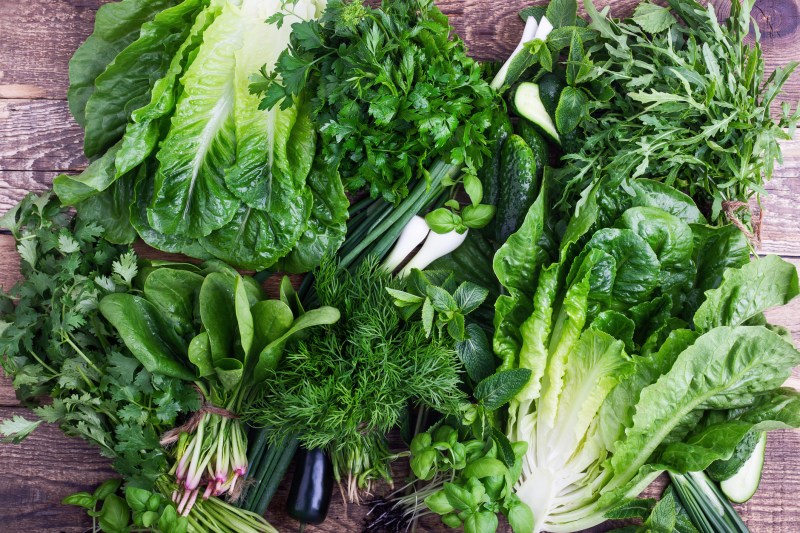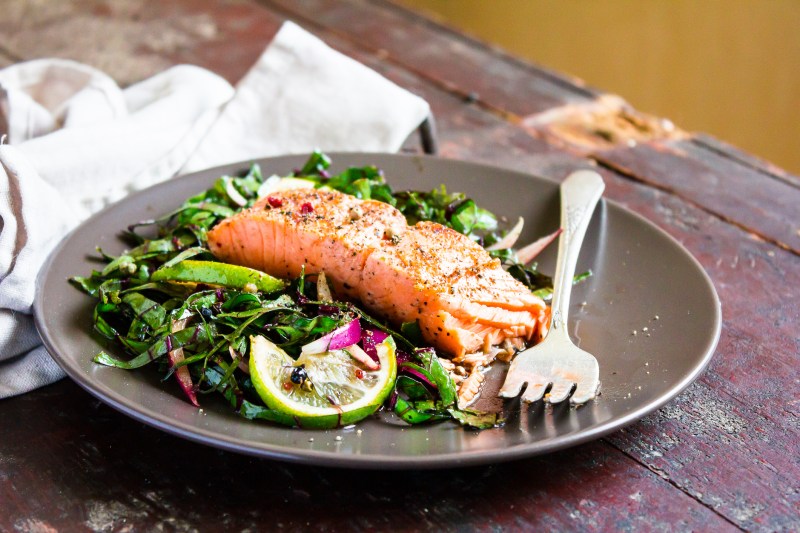In order for our bodies to stay healthy, we have to eat a healthy balanced diet full of foods containing all the vitamins and minerals. Of course, this is easier said than done, especially if we live hectic lifestyles that cause us to rush meals or even miss them altogether. The consequence of skipping meals or eating fast food on the go can include the development of vitamin and mineral deficiencies.
This can lead to health problems that present themselves with certain symptoms such as fatigue and tiredness. A common cause of such symptoms is a deficiency in vitamin b-12. This has become a prevalent deficiency, with more females affected than males. Some individuals are so deficient that they need regular vitamin b-12 injections to increase the b-12 levels in their bloodstream. The alternative to b-12 shots is mega doses of b-12 in supplement form.
It is essential to address a b-12 deficiency because vitamin b-12 benefits include aiding the formation of red blood cells. In addition, vitamin b-12 is also important in brain and nerve cell function and development.
A health condition known as pernicious anemia, where not enough intrinsic factor is created by the body, is a leading cause of vitamin b-12 deficiency.
B-12 foods include liver, red meat, shellfish, fish, and fortified breakfast cereals. Eggs and poultry are also good sources of this nutrient.
A lot of information is published about vitamin b-12, but this is not the case with cobalt. This leads many to ask what is cobalt and what does it do? Cobalt is an integral part of vitamin b-12 and plays a significant role in health despite its lack of coverage compared to other vital nutrients.
What is cobalt?

Cobalt is a trace mineral and a component of vitamin b-12. It is also known as cobalamin, cyanocobalamin, and hydroxocobalamin.
The amount of cobalt needed by the body is minimal. Even so, it helps vitamin b-12 produce red blood cells and aids carbohydrate metabolism. It also plays a vital role in making the thyroid hormone thyroxine.
Cobalt is also needed to maintain the nervous system and repair the myelin sheath. This layer of insulation protects nerves and allows electrical impulses to travel efficiently throughout nerve cells.
Cobalt is vital for proper vitamin b-12 assimilation despite the small amounts that are needed by the body. A deficiency can cause poor thyroid function, abnormal red blood cell development, shortness of breath, and anemia.
Cobalt is measured in micrograms, and it is considered safe to take between five to eight micrograms (mcg) a day for both men and women. Of course, children should take lower amounts, but interestingly, no recommended dietary allowance or (RDA) has been set.
Cobalt can be toxic if higher levels are taken, which can lead to heart muscle disease, also known as toxic cardiomyopathy. It can also increase the number of red blood cells the body produces (polycythemia), leading to congestive heart failure.
4 benefits of proper cobalt consumption

1. Myelin sheath repair
As already mentioned, vitamin b-12 and cobalt are essential for a healthy nervous system. Cobalt, in particular, has been linked with keeping the myelin sheath in good condition because it aids in the repair of these protective layers that surround the nerve axons.
Multiple Sclerosis (MS) is a major cause of disability in young people, leaving many sufferers wheelchair-bound. This is because myelin is destroyed during relapses; it is thought that cobalt can help lessen the impact of this disease, depending on what form it takes. Those with relapsing-remitting MS have more extended interludes between each relapse, allowing damage and scarring of myelin time to repair. Progressive MS does not let this happen.
2. Better vitamin B-12 function
Cobalt enhances the effects of vitamin b-12 in the body. This means that it helps vitamin b-12 produce healthy red blood cells, preventing conditions such as anemia from developing. Because of this positive effect on the blood, cobalt can also boost energy levels and help you to avoid fatigue. Cobalt also aids vitamin b-12 in healthy nerve function too. This is mainly because it prevents demyelination from occurring on the nerve axons.
3. Thyroid function
Thyroid disorders have reached record levels, with many people suffering from an over or under-active thyroid. These two conditions are the most common of all thyroid disorders. Both come with numerous symptoms such as weight gain, hair loss, dry skin, fatigue, temperature sensitivity, and more. Conventional medicine has drug treatments for both, but cobalt is thought to help stimulate the thyroid hormone thyroxine production, which is most beneficial to those suffering from an underactive thyroid.
However, taking too much cobalt can negatively affect the thyroid gland, cause thyroid enlargement, and reduce the general activity of the thyroid, so it is essential to stick to the RDA.
4. Enzyme activator
Enzymes are needed in the body because they aid certain chemical reactions to take place in our cells which are vital for our health. In addition, the human body utilizes certain nutrients to activate and produce these enzymes. Cobalt can replace manganese and zinc in some vital biochemical reactions.
7 foods high in cobalt

1. Nuts
Nuts are a great source of healthy fats, vitamins, minerals, and protein. They also contain the trace mineral cobalt. As a result, nuts provide our bodies with antioxidants and make for an all-around healthy snack.
Nut consumption has been linked with lower rates of heart disease and other common diseases such as type 2 diabetes.
2. Fish
We are constantly being told to increase the amount of fish in our diets. This is because it is a low saturated fat, high-protein food. The fats in fish are primarily omega-3 fatty acids which are good for heart health. Certain fish also contain all the cobalt the body needs daily. Freshwater fish are the best source.
3. Figs
Figs mostly grow in the Mediterranean and the Middle East. They are high in fiber which aids digestion and prevents constipation. Figs are also high in potassium which can help lower blood pressure. This fruit also contains adequate amounts of cobalt.
4. Vegetables
Increasing our vegetable intake can help supply our bodies with vital vitamins, minerals, and antioxidants. These nutrients also aid in fighting infections and preventing disease. Green leafy vegetables are also a good source of cobalt.
5. Liver
Organ meats are not to everyone’s liking, but some are highly nutritious. The liver of animals such as cows is a good source of iron and vitamin b-12, which are both blood-building nutrients. It also contains cobalt which can help boost the function of vitamin b-12 when combined in the body.
6. Apricots
Apricots contain some cobalt, but like all plant-based sources of this trace mineral, the amount of cobalt present is highly dependent on the quality of the soil the plants are grown in. Apricots also contain beta-carotene, lutein, and other micronutrients that are especially beneficial for eye health.
7. Dates
Depending on which side of the fence you sit on, dates are either healthy or full of sugar. Both are correct, but the sugar is naturally occurring. However, dates still manage a low score on the glycemic index and are packed with nutrients, including some cobalt, potassium, copper, magnesium, and manganese.
Example of a high-cobalt meal

A meal that will give you the RDA of cobalt should contain an animal-sourced protein and be accompanied by vegetables. For an ideal high cobalt quick meal such as the Grilled Salmon Steak With Green Salad, you will need:
- A medium freshwater salmon steak
- Organic broccoli
- Spinach
- Kale
- A little olive oil for the green salad dressing
- Lemon juice
Method
Grill the salmon steak or oven-roast it; even BBQ is fine. Next, steam the broccoli, spinach, and kale together until lightly cooked. Cut into pieces and add the vegetables into a bowl. Dress with olive oil and lemon juice to taste. Then serve on the side with the salmon.
Depending on the serving size, this will give you between five and eight mcg of cobalt.
Frequently Asked Questions
What’s vitamin b-12 good for?
Vitamin b-12 helps to build red blood cells and develop brain and nerve cells. As a result, it can help prevent anemia and nervous system disorders.
How much vitamin b-12 should I take?
This depends on whether you are deficient or not. If you have adequate b12 in your body, you need 1.5 micrograms a day. Higher levels in supplement or injection form are available for those with a b-12 deficiency.
How do I increase cobalt in my body?
To increase cobalt in your diet, you need to eat more liver, green leafy vegetables, fish, dates, apricots, and figs.
What is cobalt deficiency?
Cobalt deficiency is a condition with insufficient cobalt in the diet. Getting adequate vitamin b-12 also means that your cobalt levels are acceptable too.



